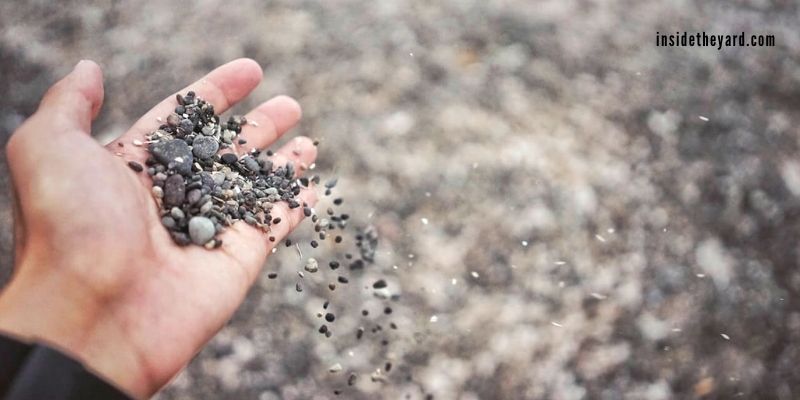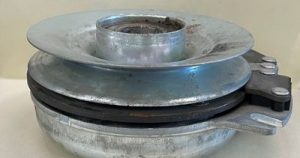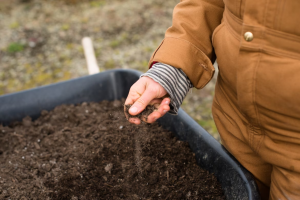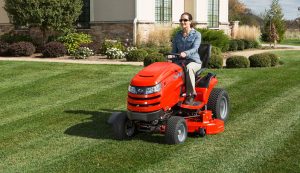What is Washout Gravel? All that’s Needed for You to Know!

What is washed gravel, then? In a nutshell, you can say it’s a kind of landscaping rock that looks like the smooth river rocks that you usually see beneath the river bed.
This provides a highly upscale customized appearance that’s entirely different from the jagged shards of crushed gravel seen in various landscaping rocks.
Let’s know more about this in-depth inside.
Table of Contents
What Is Washout Gravel & Benefits of Using Gravel Washout
River rock is a versatile sort of smooth gravel that is frequently used in landscaping, and it’s comparatively cheaper than true river rock.
You can use these washout gravels for roads, paths, play spaces, and also grilling areas. So, in summary, we can say washout gravel is a versatile rock (landscaping) that can be used everywhere — and it even generates a gorgeous and classy effect wherever you use it.
You can get several benefits fromgravel washing. In this section of the article, you’ll know about all the advantages that you can get from washed gravel.
Below are some of the ideal advantages you can get from washed gravel like a concrete washout.
1. Gravel Driveway Expense
Gravel driveways are frequently far less expensive than other driveway materials such as concrete washout boxes or stone. Indeed, the cost of gravel driveways is frequently less than the cost of an alternative paved driveway.
So, if you’re a homeowner seeking a more cheap solution to resurface the driveway, then gravel can be the answer.
2. Gravel Driveways Maintenance
Gravel driveways appear to outperform other driveway options, especially when it’s about choosing the appropriate driveway for your property.
There are some tips for you to follow when it comes to preserving your gravel driveway. Tips include raking the gravel, avoiding the use of snowplows, even filling any kinds of dips caused by washouts.
3. The Stability of Gravel Driveways
Gravel driveways usually last for quite a few years with proper upkeep. By following the easy maintenance guidelines outlined above, homeowners may extend the life of the gravel driveway and then continue to enjoy it for years to come.
Compared to other driveway materials such as washout concrete or asphalt gravel, driveways are far more resistant to winter weather.
Driveways made of solid material are susceptible to settling and cracking during times of extreme freezing temperatures or any other adverse weather conditions.
Gravel driveways may also provide superior drainage than driveways made of most other solid materials. If you’re searching for a driveway that can withstand severe weather, then a gravel driveway might be one of the best options.
Any Possible Drawbacks with Washout Gravel
However, there are also a few shortcomings that you might face from washout gravel. Below are some of the drawbacks that you can face from washed gravel.
1. Gravel Driveways are Less Aesthetic and Don’t Have too Many Options
While many individuals enjoy the rustic appearance of a gravel drive, others choose more aesthetically pleasing solutions. If you’re searching for a driveway with a unique look and design, then washout gravel might not be the best option.
Other materials such as concrete and stone might be a better fit for constructing a stunning and unique driveway design for your property.
2. The Elimination of Water from Washed Gravel
While it is a well-known fact that gravel driveways provide superior water drainage compared to pavement materials, this advantage does not come without a price.
Gravel driveways may undergo gravel washouts during inclement weather, such as rain. If your driveway is often used and the area receives a lot of rain, a gravel driveway can’t be the ideal option.
When crushed concrete driveways are washed out, it can create several difficulties, including potholes and dips that can become problematic if the road is not well maintained. You need to keep this in mind while determining the optimal driveway for your property.
3. Removal of Snow and Ice While Using a Gravel Driveway
Along with severe rainfall, it is essential to remember not to use snowplows on the driveway if you are living in anwinter regional area.
Snowplows can do severe damage to the gravel driveway, increasing the likelihood of washouts and holes. It is essential to leave on the washed gravel during the winter months to protect it.
You May Like This Video Too!
Frequently Asked Questions (FAQs)
How do you keep a washout on a gravel driveway?
Using a shovel, backfill the ditches with 1/2-inch drain rock. When the drain rock reaches the level of your gravel driveway, replace the gravel with a geotextile sheet. Dirt and silt are prevented from leaking to the drain and blocked by the geotextile covering.
What kind of gravel is best for a driveway?
Pea gravel is a common type of gravel used to enhance the beauty of driveways. It is composed of spherical, tiny stones that come in various colors. However, because this sort of gravel washout finish is prone to migrate and spread under the weight of cars, it needs stabilizing for any long-term and maintenance-free use.
Why do you need a concrete washout?
After pouring concrete on a job site, the hoppers of concrete pump trucks must be cleaned to remove any residual concrete before it hardens. This will keep the floor’s surface pretty solid and it can surely come in handy.
What is a washout area?
A washout area can be developed in various ways to collect wash water from tool cleaning and concrete mixer chutes and from pump trucks.
Bottom Line
If you were searching for what is washout gravel, we hope through this guide you’ll now have aexplicit idea of what it is.
There are many ways you can get benefits from these washed gravels. However, there are a few cons that you can also face with this washed gravel.
So, with this writing, now know all the ins and outs of this to implement for the best use!







